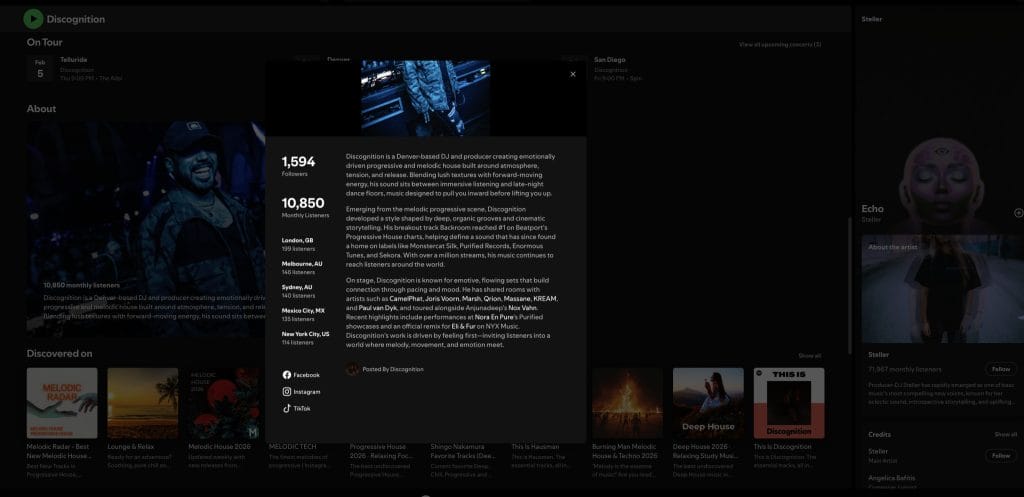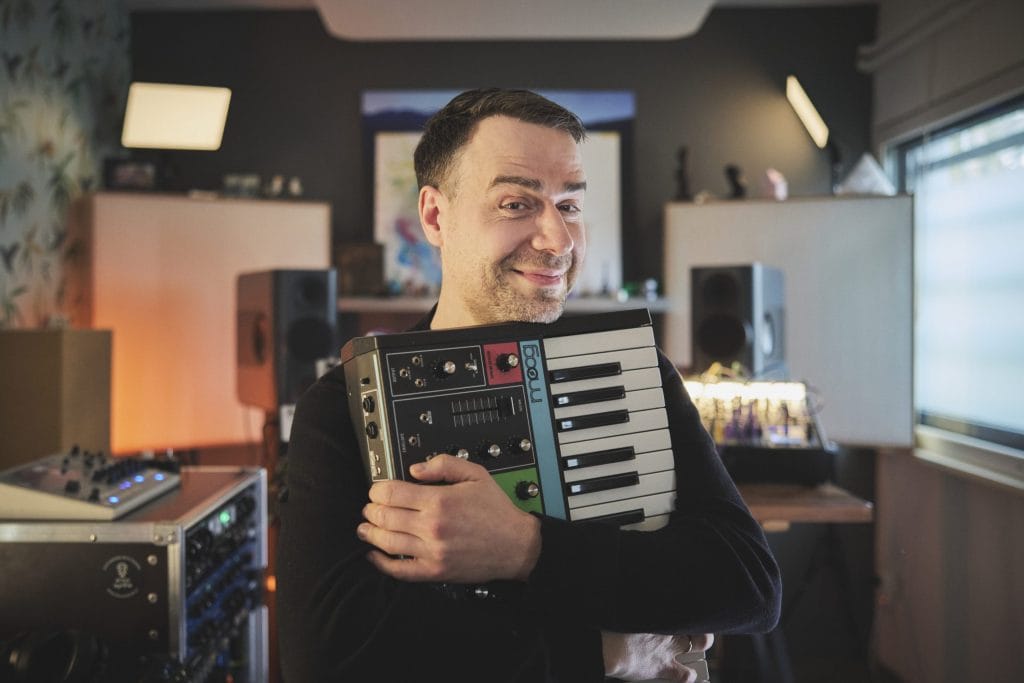Photo Credit: Sascha Wysk / vierfotografen
Stimming’s new album Friedrich arrives as both a technical achievement and an emotional document. Known for shaping organic textures into precise electronic structures, the German producer steps into more vulnerable territory without letting go of his sonic discipline. Released via Stimming Recordings, Friedrich is the second entry in a trilogy that explores life through small, overlooked moments—the kind that leave quiet impressions but shape entire outlooks.
The album moves between warmth and friction. Tracks like “Golden Path” radiate a flowing energy drawn from festival freedom, while “Lucky Me” and “Keys Don’t Match” wrestle with illness, endings, and the contradictions of adulthood. The pigeon—a recurring image in Stimming’s work—serves as a symbol here too. Not because of what it is, but because of how easily we fail to notice it. That idea runs parallel to how Stimming treats his sound design: with the belief that paying close attention uncovers something emotionally resonant.
We caught up with him to talk about identity, balance, and why effort-based joy—like cooking or carving synth patches—is what keeps the whole thing moving.
How do you make space for your identity outside of music?
There’s no need to make out a separate space – my music is pretty much my identity. I don’t pretend to be someone else in my music – each piece reflects something real: a thought, a memory, a fear, a hope. Lucky Me”, for example, is an unfiltered response to my cancer diagnosis – holding both the terror and the gratitude of that moment. “Pulsar144” captures the overwhelming, often invisible rhythms of fatherhood.
These aren’t abstract ideas, they’re lived experiences translated into sound. Instead of stepping away from myself to create, I step into different parts of who I already am. That’s probably why each album feels like a personal time capsule.
What parts of your life feed your creativity, even if they’re not creative?
Sleep. Beyond that, it’s often the seemingly mundane stuff. Like the track “Holz und Silber” from my new album, Friedrich, grew from a quiet moment of reflection – something tactile and domestic that slowly turned into sound.
Have you ever felt like your art was your entire identity?
Yes, very much so – and it still is, in many ways. See answer one! But I’ve also come to see how identity expands when you allow life to shape it. For a long time, I thought being an artist meant giving everything to the work. Then I became a father, a partner, a person with limits. “Golden Path” reflects that shift – its warm, flowing energy came from a rare moment of freedom at a festival in Portugal, where I allowed myself to just be. Suddenly, these other roles weren’t separate – they added colour, depth, and contradiction to the music. So while art is central, it’s no longer the only lens through which I see myself.
What helps you stay grounded when things feel too tied to music?
I’m a father of three – that’s the strongest grounding one can have. Actually, since my wife also works full-time, during the pandemic and still afterwards, being a father became just as important to me as being a musician. Sometimes I wish I could return to being purely a musician (besides being a husband), but reality has other plans. And: accepting reality is part of being free. Once the kids are grown up, I’ll be able to dedicate more time to music again. That shift shows up in “Sugar and Lemon”, where the fragility of the melody contrasts with the grounded, earthy bass – a quiet metaphor for trying to stay balanced amid emotional chaos.
Sometimes I miss the version of me that had uninterrupted studio days, but this chapter is rich in its own way. Learning to embrace that, without resentment, is a discipline in itself.
What’s something you do regularly that keeps you feeling whole?
Cooking. When it turns out nicely (which happens two out of three times – maybe a bit less, to be honest), I’m pretty happy.
How do your relationships benefit your music — and vice versa?
Relationships in general are the source of very strong emotions, so of course, they play a huge role in many of my tracks. Vice versa? I’m not sure. I’ve made statements through music, yes, but they were mostly things already known to the person they were about. Sometimes, like with “For My Girl” back then, it was more like a meditation on my actual state of mind – without really knowing what it meant myself. Take “Keys Don’t Match”, for instance.
That wasn’t just a collaboration, it marked the emotional closure of a relationship that had lingered for nearly 15 years. Dominique’s lyrics unlocked something for me I hadn’t put into words.
What do you come back to when music isn’t enough?
Nah, it’s the opposite. I always come back to music when the world isn’t enough. There’s something strange about music: it demands attention, focus, and the willingness to give it space – whether that’s mental or physical.
That makes it a joy that requires effort. Not much, but enough to challenge our lazy modern brains that prefer quick dopamine hits from short videos. That sense of reward from making an effort seems to be essential for my well-being.
The post How Stimming uses sound to document fatherhood, fear, and joy appeared first on Magnetic Magazine.






